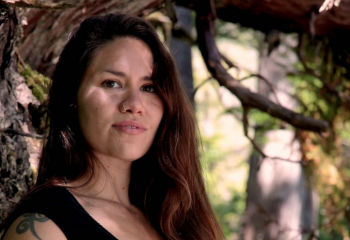Canadian nurse leads colleagues in environmental and community health education

Jessica Madrid
From ozone layer depletion to the impact of recycling, Jessica Madrid has been captivated by how humans interact with the environment since she was a child. As a registered nurse, Madrid is able to connect her passion for public health with her interest in environmental sustainability.
Ever since she was a child, Jessica Madrid has been interested in nature. From ozone layer depletion to the impact of recycling, she was captivated by how humans interact with and impact their environment.
Growing up, Madrid’s own community started to notice the impacts of climate change with warmer winter months and hotter, drier summers. She said what followed were higher cases of illnesses related to extreme temperatures and poor air quality. When Madrid started working as a registered nurse in 2003, her interest in the environment merged with her passion for public health.
“When I started to work in public health, it just seemed so logical to me that we should be talking about the state of our environment and how that relates to health in this type of work,” Madrid said. “I was really shocked that it just didn't seem to be on anybody's radar at the time, or it was certainly not a popular opinion in health or in public health to think about the environment as being a determinant of health.”
Madrid now works as a nurse in a clinic for the First Nations Health Authority in British Columbia. When the Canadian Nurses Association held a forum for nurses interested in the environment and health in 2008, she thought, “these are my people, these are the nurses that I've been looking for.”
“That really was the impetus for me to get engaged with initiatives that had to do with the environment from a nursing perspective,” she said.
Madrid’s passion for teaching and “community as an extension of the individual” pushed her to earn her master’s degree in community health in 2014 from the University of Northern British Columbia. Her graduate research centered around the link between health promotion and environmental activism. Since 2004, Madrid has also been a guest lecturer on environmental health.
Now, Madrid serves as the president of the Canadian Association of Nurses for the Environment (CANE). The organization emphasizes addressing planetary health and environmental sustainability, she said.
Through her work with CANE, Madrid said she was consistently hearing from nurses that they needed concrete tools and a roadmap for addressing climate change through health care work, and that some were “feeling lost in terms of their approach.” When Madrid learned about the Nurses Climate Challenge, she and her colleagues had already been toying with the idea of creating tools and resources similar to that of the Nurses Climate Challenge.
“There it was in this beautiful complete package that was so well thought out and so comprehensive,” she said. Madrid said she wanted to create resources that were as applicable to health care work in Canada as possible. While at the crux of the matter, climate change issues are relatively similar in both Canada and the United States. Both countries, however, have large differences in their political and health care systems, like how Canada provides universal health care.
Mardrid said she and her colleagues at CANE have been “blown away” by how supportive Health Care Without Harm and Alliance of Nurses for Healthy Environments have been in helping CANE become involved in climate action initiatives and work to modify the Nurses Climate Challenge resources for Canadian nurses.
“This represents a wonderful partnership that's happened, really between two nations, around climate change,” Madrid said. “I just want to see more of this happening, because we're all in it together.”
Madrid said as an elder millennial, she is a part of a new community of climate action leaders. She said millennials are more equipped to address climate change than they may realize, and can lean on their ability to use technology to share information creatively and globally.
“It is now increasingly the responsibility of us as millennials to really step up to the plate and be the advocates and be the educators,” she said. “We have the capacity as millennials to really be amazing change agents, maybe even more so than the generation that preceded us.”
Find out more about CANE and how you can become a change agent for human and planetary health.
Jessica Madrid lives on the archipelago of Haida Gwaii off the West Coast of British Columbia, Canada, and enjoys hiking, kayaking, and making music with her husband and son. Madrid also lives with her dog, Inti, and her cat, Smokey. She has a master’s degree in community health and is a guest lecturer on environmental health. Madrid is the president of the Canadian Association of Nurses for the Environment and works as a nurse for the First Nations Health Authority.
